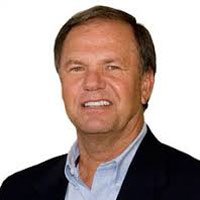U.S. companies spend billions of dollars a year on training, but how many of those businesses are seeing positive, measurable results from such a large investment in their employees?
Not enough of them, studies and experts say. One study on workplace training reported that 43 percent of employees found their training to be ineffective.
“I doubt that many employees would rate their training as engaging, rigorous, or highly effective,” says Dr. Jim Guilkey (http://www.jimguilkey.com), author of M-Pact Learning: The New Competitive Advantage — What All Executives Need To Know. “For most trainees and trainers alike, job-required education is viewed as a necessary evil.”
So how can companies train their employees better and from that training produce outcomes that grow the business? Dr. Guilkey says it comes down to employing effective instructional design methodologies rather than traditional models.
“Traditional training often doesn’t work for companies today in competitive marketplace environments where growth is essential to survival,” he says. “The training is usually developed and delivered by subject-matter experts who have little or no knowledge of instructional design. Assessments test rote memorization rather than the ability to apply specific knowledge in authentic situations.”
Dr. Guilkey suggests some new learning solutions and why he thinks they’re more effective than traditional training methods:
Problem-based. “Problem-based learning involves a strategic approach of structuring the learning process within authentic, challenging, and multidisciplinary problems the learner must address,” Guilkey says. “This results in higher levels of learning than content-based, traditional training, which teaches content with little or no application to authentic, real-world problems.”
Continuous learning. “As opposed to singular-event learning, continuous learning is an ongoing process that allows learners time in the field to assimilate and apply new knowledge before learning more advanced concepts,” Guilkey says.
Collaborative learning. A variety of interactions between peers, mentors, and facilitators fills in gaps, answers more questions, and reinforces the learning process. “This differs from the traditional method in which the learning is limited by focusing on the lecturer — a one-way transmission of content,” Guilkey says.
Multidisciplinary. The traditional approach focuses on singular concepts presented in a linear fashion, whereas the multidisciplinary approach “requires participants to combine and correlate learning across concepts and use real-life scenarios,” Guilkey says.
Testing for application of knowledge. Guilkey thinks assessment should be based on the performance of a strategic task, in which learners apply their skills and knowledge, rather than the traditional style of testing for rote memorization. “There’s a huge difference between being able to recall pieces of information and having a performance-based measurement to put all the pieces together,” Guilkey says.
“Many company leaders are unclear on the actual skills and knowledge of their employees and whether they are providing a competitive advantage,” Guilkey says. “You’ll never create a competitive advantage using traditional training methods.”
For more such Updates Log on to www.hrtechcube.com Follow us on Google News Hrtech News

Jim Guilkey president of S4, NetQuest
Jim Guilkey, PhD (http://www.jimguilkey.com) is the author of M-Pact Learning: The New Competitive Advantage — What All Executives Need To Know. He is the president of S4 NetQuest and a nationally recognized expert in instructional design and learning strategy, with extensive experience in leading the design, development, and implementation of innovative, highly effective learning solutions. Under his leadership, S4 NetQuest has transformed the learning programs for numerous corporations, including Johnson & Johnson, McDonald’s, Merck, Nationwide, Chase Bank, BMW, Cardinal Health, Domino’s, GE Medical, Kaiser Permanente, Yum! Brands, and others. Guilkey is a frequent speaker at national conferences and corporate training meetings. Before co-founding S4 NetQuest, Guilkey served as the assistant director of flight education at The Ohio State University. He received a BS in aviation and an MA and PhD in instructional design and technology from Ohio State.












